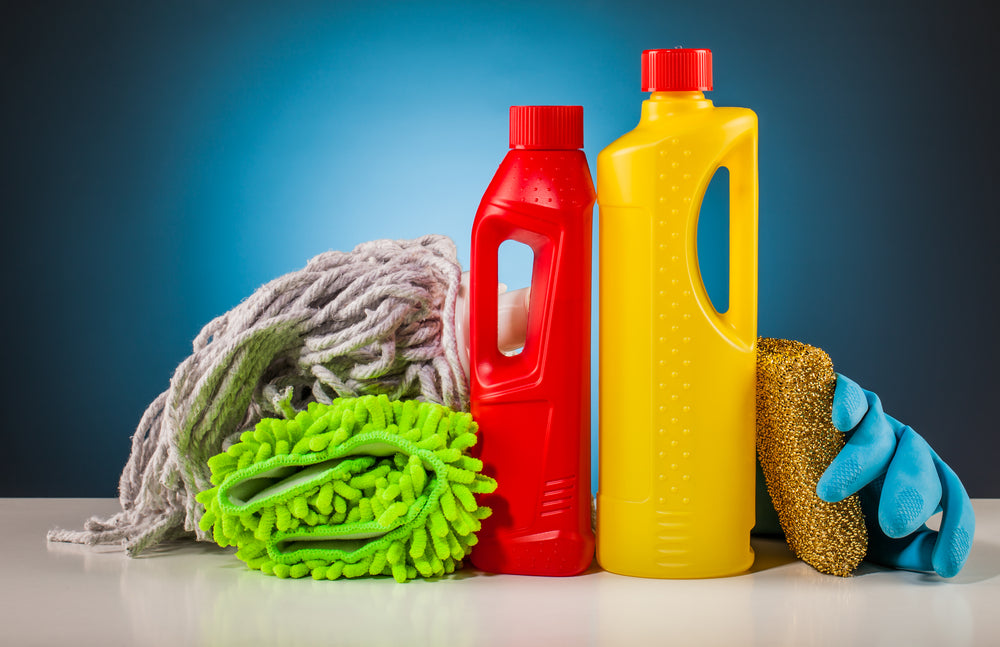
Navigating Boat Cleaning: Do Household Cleaners Make the Cut?
Share
If you’re feeling economical, you’re probably tempted to reach under the sink to pull out a few of your go-to house cleaners the next time you wash your boat. And why wouldn’t you? Your soaps and Windex clean your home just fine, don’t they?
Well, hold on there, sailor—if you’d be hesitant to use that bottle of Dawn on your new car, you’ll want to be wary about using it on your watercraft, too. Because it spends so much time in the water, you must be very particular about the products you use to treat and maintain your vessel. So if you’re still wary of forking out money for fancy boat cleaners, the knowledgeable folks at Clean Boat US are here to help! Read on to find out which of those under-the-sink staples are safe to use on your vehicle and which you should avoid at all costs.
The Bad
First, let’s talk about the items you absolutely need to keep away from your boat during a cleaning. They may be great for dishes and tile floors, but you don’t want them anywhere near your seafaring vessels.
- Dish soap: These are great for dirty plates and bowls since they’re designed to eat through grease, but this makes dish soaps extremely caustic. They’ll easily strip the wax from your hull.
- Soft Scrub: Name aside, Soft Scrub products are ironically one of the harshest chemicals you could use on your boat. They have a grit that’s great for removing stains, but it will also dull your gelcoat and paint after even one application.
- Bleach: It’s a powerful cleaner and can make surfaces look like new, but bleach is an incredibly potent chemical. It’ll dull your gelcoat, fade paint, and corrode fittings.
- Windex: Glass cleaners like Windex or Pledge contain ammonia, which will eat away the finish on your boat’s isinglass and plexiglass surfaces and leave you with a hazy, yellow appearance.
The Good
With those undesirables out of the way, let’s talk about what you can use on your craft when you’re looking to save a bit of money. For this list of boat cleaners, we’re headed into the pantry:
- Vinegar: Dissolves dirt, debris, and grime.
- Lemon juice: Dissolves dirt, debris, and grime.
- Baking soda: Dissolves dirt and grease. Neutralizes odors.
- Hydrogen peroxide:
- Borax: Dissolves stains, mold, and mildew. Neutralizes odors.
- Cream of tartar: Dissolves dirt and grease. Similar to baking soda.
None of these should be used alone or applied directly to your craft—instead, we want to mix and dilute them enough to ensure they can be safely used. Here are some examples:
-
All-purpose cleaner
- A simple go-to that you can use on just about everything. Mix one cup of white vinegar with a gallon of fresh water. Use a scrub brush or soft cloth to wipe off surface dirt and grime, then rinse.
-
Aluminum cleaner
- Add two tablespoons of cream of tartar to a quart of hot water and mix. Use a soft cloth to wipe aluminum surfaces, then rinse.
-
Stainless steel cleaner
- Take two tablespoons of baking soda and gradually add small amounts of water while mixing until you get a thick paste. Use a soft cloth to rub the paste onto stainless steel surfaces, then rinse. To remove water spots, use a fresh cloth dipped in a bit of white vinegar after the surface has dried.
-
Fiberglass stain remover
- Take two tablespoons of baking soda and gradually add small amounts of water while mixing until you get a thick paste. Use a soft cloth to rub the paste on fiberglass and remove stains, then rinse.
